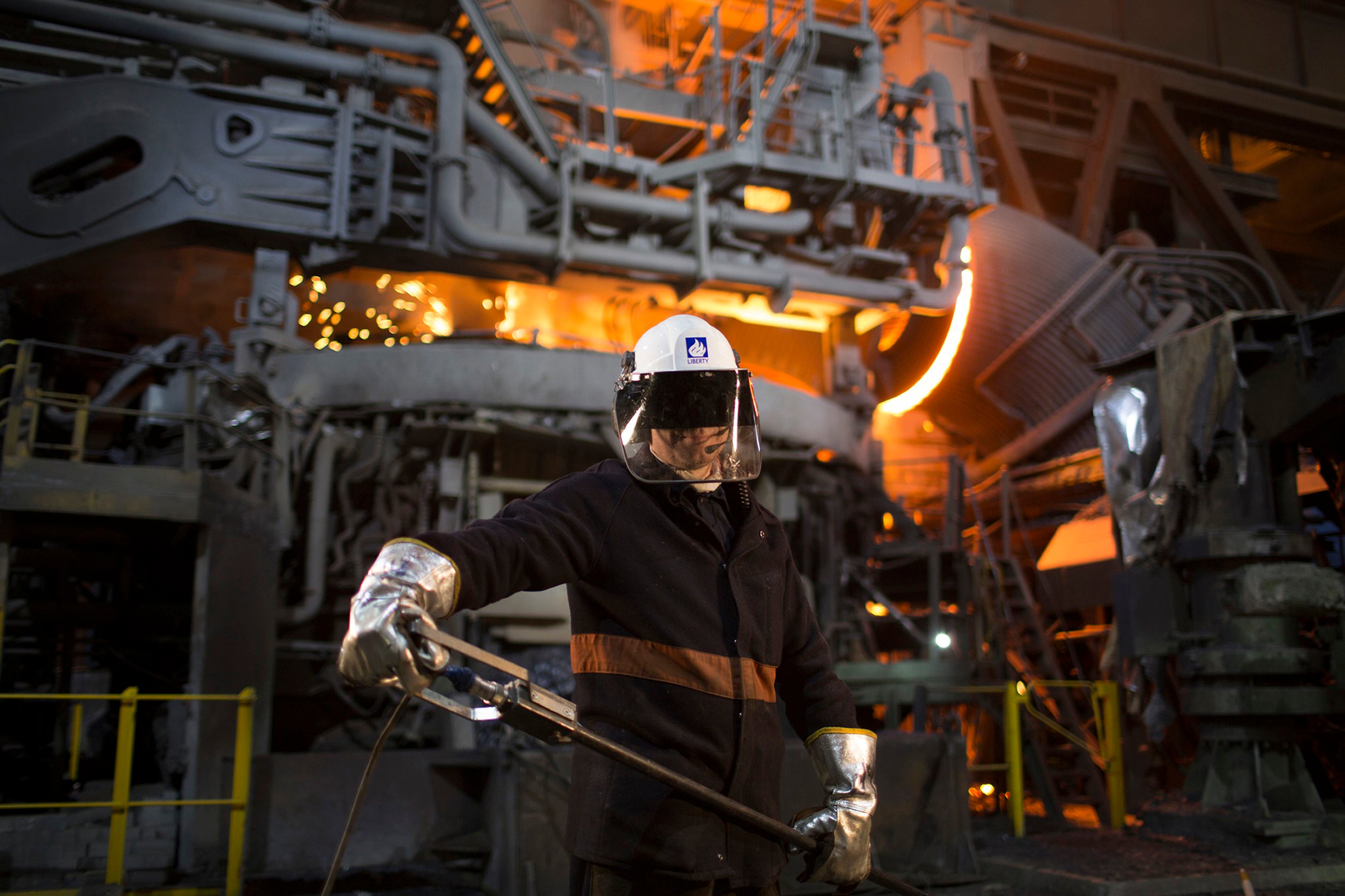Government loans may be just flimsy sticking plaster, says steel boss
The head of UK Steel said they needed to see details of a support package put forward by Business Secretary Kwasi Kwarteng.

A taxpayer-backed support package for energy-intensive businesses hit by the surge in gas prices may be no more than a “flimsy sticking plaster”, industry leaders have warned.
Prime Minister Boris Johnson is reportedly backing a plan being developed by Business Secretary Kwasi Kwarteng for state loans to firms threatened with closure over the winter.
The move follows an extraordinary Whitehall turf war between Mr Kwarteng and Chancellor Rishi Sunak, which broke out over the weekend, with the Treasury denying there any plans for the Government to act.
Gareth Stace, the director general of the trade body UK Steel, said that while they welcomed Mr Kwarteng’s intervention they had yet to see details of the proposals he put forward.
If this package results in us still paying 80% more for energy than our competitors in continental Europe then really this will really be a flimsy sticking plaster on what is really a major crisis that we are going through at the moment
He said that without adequate support the industry faced heavy job losses with plants being forced to close as they could not afford to keep running.
“I can’t comment on that proposal because I haven’t seen it and therefore I can’t comment on whether it is enough, whether it will fix the problem or not,” he told BBC News.
“The key test in this proposal is are we now going to be on an equal footing with steelmakers in Germany?
“If this package results in us still paying 80% more for energy than our competitors in continental Europe, then really this will really be a flimsy sticking plaster on what is really a major crisis that we are going through at the moment.”
Earlier, Cabinet Office minister Stephen Barclay confirmed that ministers were in discussion with businesses about what support they needed to prevent a wave of closures.
There’s a balance here between what support to give and also protecting the taxpayer
He stressed, however, that the taxpayer must be protected in any bailout as the Government had already provided “huge support” to business during the pandemic.
“We’re keen to work with them as we bridge the pressures that they currently face,” he told Times Radio.
“There’s a balance here between what support to give and also protecting the taxpayer, given that we have high tax rates, that we have borrowed a very considerable sum over the last two years.
“There are some specific issues around the energy-intensive industries and we’re working with them to understand those and to see what is proportionate for the taxpayer in terms of that response.”
It is thought the total package could run to hundreds of millions of pounds, with industries such as ceramics and paper as well as steel manufacturing among those likely to seek support.
Mr Barclay said there had been “extensive engagement” with industry and that it would be for firms themselves to decide what level of support they wanted.
“We’re discussing with the industry, the first instance is for the industry themselves to respond in terms of their shareholders, their businesses,” he said.
“Some businesses will have hedged against some of these risks, there’ll be different issues within specific sectors.”
Mr Johnson is reported to want to see the loan scheme implemented swiftly despite the misgivings of the Chancellor over the costs.
With high energy costs expected to continue over the winter, there are fears in Whitehall that factories will have to close or businesses go to the wall altogether.
Mr Kwarteng held talks with industry leaders last week, and ministers and officials are set to continue speaking to businesses throughout this week.
Mr Stace warned that unless the Prime Minister took “swift and firm action” it could undermine his whole “levelling-up” agenda.
He said the industry already had to contend with a series of “policy costs” from the Government – such as renewables costs and carbon costs – which its overseas competitors did not.
“Unless the Prime Minister wants his levelling-up, high-wage economy to suddenly become into tatters because we see job losses in the steel sector then the Prime Minister needs to take action,” he said.
Bookmark popover
Removed from bookmarks